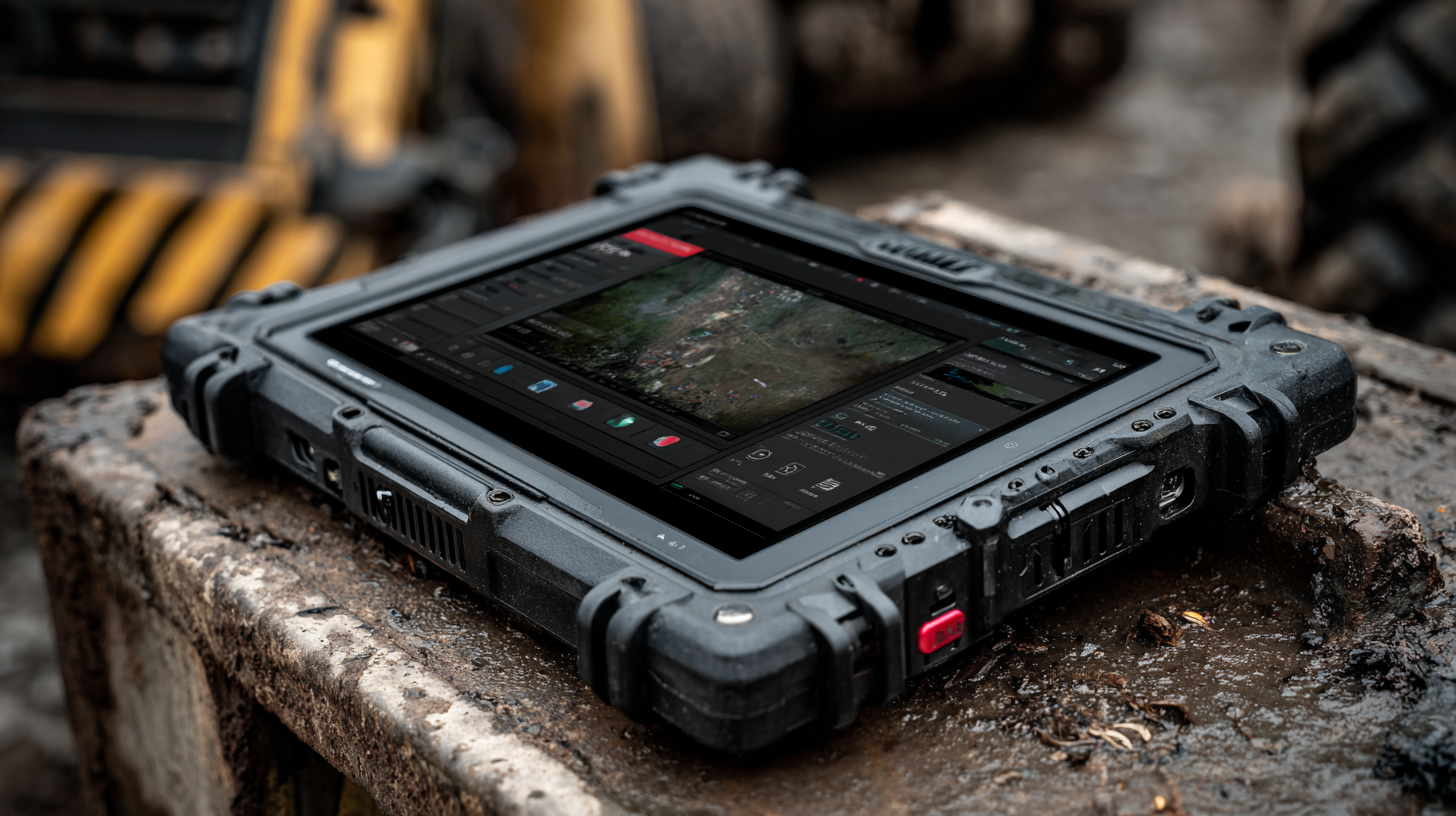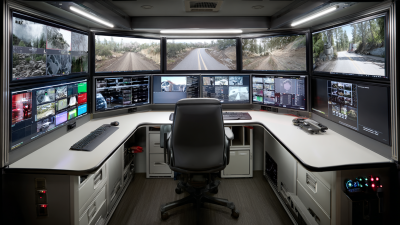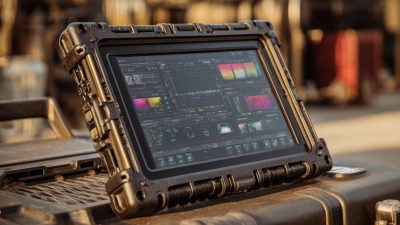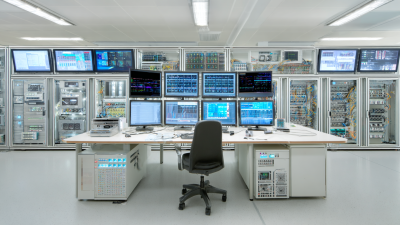How to Choose the Right Rugged Panel Computer for Your Toughest Environments
When it comes to selecting the ideal rugged panel computer for the toughest environments, the task can often feel overwhelming due to the plethora of options available in the market.
 Rugged panel computers are specifically designed to endure extreme conditions such as fluctuating temperatures, humidity, vibrations, and even exposure to dust and liquids.
Thus, understanding the essential features and specifications that cater to these harsh settings is crucial for making an informed decision.
This guide aims to equip you with the knowledge needed to assess various rugged panel computers, ensuring that you choose a model tailored to your specific needs.
By delving into factors like durability, performance, and compatibility, we will illuminate the path to finding the perfect rugged panel computer that can withstand the challenges of any demanding environment.
Rugged panel computers are specifically designed to endure extreme conditions such as fluctuating temperatures, humidity, vibrations, and even exposure to dust and liquids.
Thus, understanding the essential features and specifications that cater to these harsh settings is crucial for making an informed decision.
This guide aims to equip you with the knowledge needed to assess various rugged panel computers, ensuring that you choose a model tailored to your specific needs.
By delving into factors like durability, performance, and compatibility, we will illuminate the path to finding the perfect rugged panel computer that can withstand the challenges of any demanding environment.
Key Factors to Consider When Selecting a Rugged Panel Computer
When selecting a rugged panel computer for challenging environments, several key factors must be considered to ensure optimal performance and durability. One critical aspect is the device's build quality; rugged computers are specifically designed to withstand harsh conditions, including extreme temperatures, moisture, and impact. Look for models that have passed military-grade testing to confirm their reliability in tough settings. Modular designs can also offer significant advantages, allowing users to customize and repair the device as needed, which can be crucial in maintaining operational efficiency.
Another essential consideration is compatibility with various applications and interfaces. As industries increasingly adopt specialized software and connectivity options, ensuring your rugged panel computer can integrate seamlessly with existing systems is vital. Factors such as processing power, display quality, and battery life also play important roles in the overall performance of the device. For technicians in demanding fields, features that enhance usability—like touch capability or support for multiple input methods—can greatly improve their productivity in the field. Ultimately, careful evaluation of these factors will guide you in choosing the most suitable rugged panel computer for the toughest environments.

Assessing Environmental Conditions for Optimal Performance
When selecting a rugged panel computer for extreme environments, assessing environmental conditions is critical for ensuring optimal performance. According to a report by VDC Research, industries such as manufacturing and transportation often report that over 60% of their equipment failures are attributed to environmental factors like temperature extremes and humidity levels. Rugged panel computers must be engineered to withstand these conditions, featuring robust enclosures that protect sensitive components from dust, moisture, and temperature fluctuations.
In addition to temperature and humidity, vibration and shock resistance are vital considerations. A study from MarketsandMarkets indicates that the rugged computing market is projected to grow at a compound annual growth rate (CAGR) of 5.8% from 2021 to 2026, driven by increasing demand in sectors such as field service and military applications. Rugged panel computers designed with military-grade specifications (MIL-STD-810) can endure high levels of vibration and shock, making them ideal for use in vehicles or industrial settings where reliability is paramount. By carefully evaluating these environmental conditions, businesses can ensure they choose a rugged panel computer that will operate efficiently and reliably in their specific work environments.
How to Choose the Right Rugged Panel Computer for Your Toughest Environments - Assessing Environmental Conditions for Optimal Performance
| Environmental Condition | Importance Level | Recommended Features | Typical Applications |
|---|---|---|---|
| Temperature Extremes | High | Wide operating temperature range, thermal management | Manufacturing, Mining |
| Humidity | Medium | IP65/67 rated enclosures, moisture-resistant components | Marine, Food Processing |
| Dust and Debris | High | Sealed units, fanless designs | Construction, Automotive |
| Vibration and Shock | High | Shock-mounted hardware, rugged chassis | Military, Transportation |
| Electrical Interference | Medium | EMI shielding, filtered connections | Healthcare, Industrial Automation |
Comparing Durability Standards and Certifications
When selecting a rugged panel computer for demanding environments, understanding the various durability standards and certifications is essential. Key standards include IP ratings, which assess ingress protection against dust and moisture, and military standards like MIL-STD-810, which measure resistance to extreme temperatures, shock, and vibration. Familiarizing yourself with these standards will help you determine which devices can withstand the unique challenges of your workspace.
Tips for choosing the right rugged panel computer include checking the IP rating—aim for at least IP65 for protection against water and dust. Additionally, consider the operating temperature range specified by the manufacturer; a wider range ensures reliability in fluctuating environmental conditions. Lastly, seek products that are certified by recognized military standards for maximum durability and performance assurance.
As you narrow down your options, don't forget to evaluate the type of mounting and interface available, as these factors can impact usability in tough conditions. Prioritizing features that align with your operational needs will ensure that your rugged panel computer not only survives but thrives in the toughest environments.
Evaluating Performance Specifications for Heavy-Duty Use
When selecting a rugged panel computer for demanding environments, evaluating performance specifications is crucial. Begin by examining the processor capabilities. For heavy-duty use, a multi-core processor with high clock speeds will ensure tasks are completed efficiently, whether it's running complex simulations or managing real-time data. Consider the thermal tolerance as well; a computer that can operate in extreme temperatures will be more reliable in harsh conditions.
Memory and storage are also critical factors. Look for a system with ample RAM to handle multitasking without performance lags, and opt for SSD storage for faster data access and increased durability compared to traditional HDDs. Additionally, the performance of integrated graphics can be significant, especially if the computer needs to render high-resolution images or video. Finally, ensure that the input and output options cater to your specific needs, including the ability to connect to various peripherals and networks in tough environments.
Performance Comparison of Rugged Panel Computers
Understanding Connectivity Options for Rugged Panel Computers
When selecting a rugged panel computer for challenging environments, understanding connectivity options is paramount. These computers must not only be durable but also offer reliable communication capabilities to ensure seamless operation in tough conditions. Key connectivity options include traditional Ethernet ports for reliable wired connections, which are crucial in industrial settings where wireless signals may be unstable. Additionally, look for models that provide USB and serial ports for connecting essential peripherals and devices.

Moreover, modern rugged panel computers often support wireless connectivity options such as Wi-Fi and Bluetooth. These features are essential for real-time data transfer and remote management, allowing users to operate flexibly without being tethered to a network.
Industries like manufacturing, transportation, and military applications benefit from integrated cellular modems, enhancing connectivity even in remote locations. Ultimately, choosing a rugged panel computer with the right combination of connectivity options ensures that operations can continue smoothly and efficiently in the most demanding environments.
Related Posts
-

The Comprehensive Ultimate Guide to Choosing the Right Rugged Panel Computer for Your Needs
-

Ultimate Guide to Choosing the Right Rugged Panel PC for Your Business Needs
-

5 Features That Make Rugged Panel Computers the Best Choice for Tough Environments
-

5 Essential Tips for Choosing the Right Industrial Panel PC for Your Business
-

Innovative Uses of Ruggedized PCs in Extreme Environments
-

Essential Techniques for Maximizing Industrial Panel Performance in Your Operations

